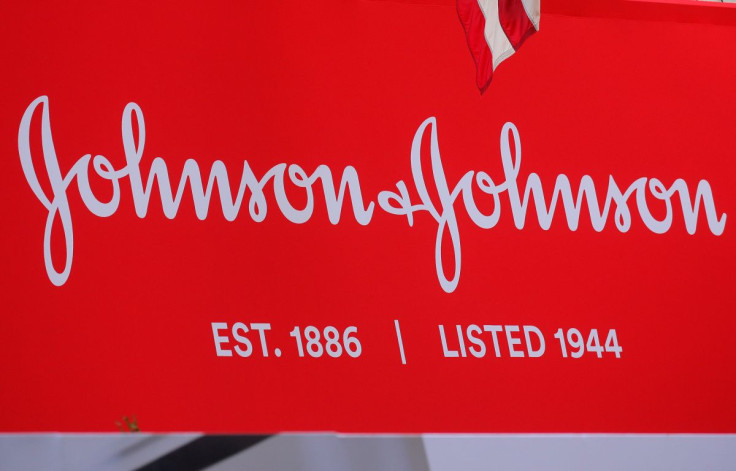Judge Allows J&J Spinoff To Keep Talc Lawsuits In Bankruptcy Court, Shares Rise

A U.S. judge ruled on Friday that a Johnson & Johnson subsidiary can remain in bankruptcy, preventing plaintiffs from pursuing 38,000 lawsuits against the company alleging its baby powder and other talc products cause cancer.
J&J's stock rose more than 5%, its biggest one-day gain since the start of the pandemic in spring 2020. The company also said on Friday it planned to move ahead with a $5 billion settlement to resolve claims by states and local governments that J&J contributed to the U.S. opioid epidemic.[L1N2V01ZA]
J&J maintains its talc is safe and is attempting to resolve the talc lawsuits by putting a recently formed subsidiary, LTL Management, into bankruptcy, which the plaintiffs argued was an abuse of the Chapter 11 system.
U.S. Bankruptcy Judge Michael Kaplan forcefully rejected the plaintiffs' argument, saying that J&J's approach was "unquestionably" proper and that bankruptcy offers a faster and more fair alternative to decades of litigation in other courts.
Jon Ruckdeschel, an attorney for plaintiffs pursuing the talc lawsuits, said the ruling would be appealed.
"The bankruptcy code was never intended to be abused in this way by massively profitable corporations as a means to delay or prevent cancer victims from having their day in court," he said in a statement.
J&J used a legal maneuver known as the "Texas two-step," which allows companies to split valuable assets from liabilities through a so-called divisive merger. The healthcare conglomerate, which has a stock market value of more than $400 billion, created LTL in October 2021 and LTL filed for bankruptcy days later.
Talc plaintiffs and some critics had warned that the strategy could "open the floodgates" for other companies facing mass litigation risk.
Kaplan said "maybe the gates indeed should be opened."
"There is nothing to fear in the migration of tort litigation out of the tort system and into the bankruptcy system," Kaplan wrote.
More than 38,000 lawsuits have been filed alleging that J&J's talc-based products contained asbestos and caused ovarian cancer and mesothelioma, an illness linked to asbestos exposure.
The company, in a statement, called the ruling a positive development, adding that an independent investigation would establish that the formation of LTL and the Chapter 11 filing were appropriate.
"LTL stands ready to work with claimants' counsel and the mediator to reach an equitable and efficient resolution as ordered by the Bankruptcy Court," J&J said in a statement.
J&J has set aside $2 billion to settle talc claims, but LTL executives characterized that number as a starting point rather than a "cap" during court proceedings last week.
Kaplan said he believed there was a need for "independent scrutiny" of the company's restructuring and said he would consider appointing an examiner at a March 8 hearing.
LTL attorneys argued that bankruptcy was the only practical way to resolve the sheer volume of lawsuits that have been filed against J&J.
Reuters exclusively reported earlier this month that J&J secretly launched "Project Plato" last year to shift liability from its pending talc lawsuits to the newly created subsidiary, which was then to be put into bankruptcy. [L1N2UF2HM]
The strategy angered lawyers for cancer plaintiffs, who in court called it "rotten to the core."
It also alarmed lawmakers including U.S. Senator Sheldon Whitehouse, who said it provided a blueprint for other well-heeled corporations to deprive victims of the compensation and "hide assets in plain view."
A 2018 Reuters investigation found that J&J knew for decades about trace amounts asbestos in its baby powder and other cosmetic talc products. The company stopped selling its Johnson's baby powder in the United States and Canada in May 2020, in part due to what it called "misinformation" and "unfounded allegations" about the talc-based product.
© Copyright Thomson Reuters 2024. All rights reserved.







